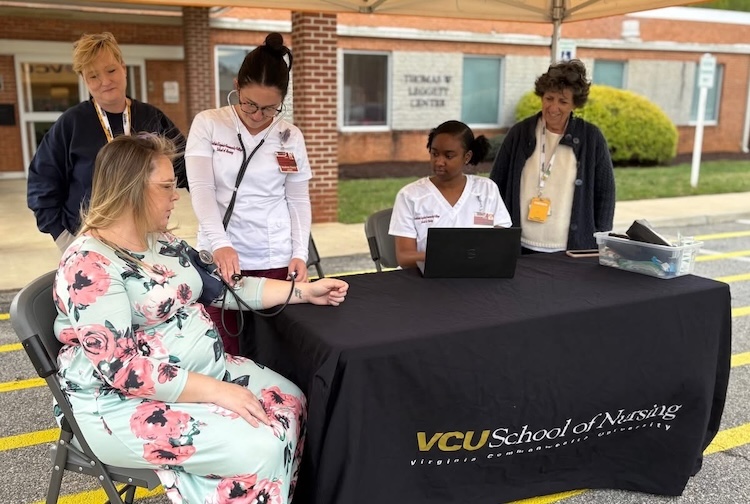VCU liver specialist collaborates with PSC Partners patient organization to study rare disease
VCU to serve as a key U.S. site for a global study on primary sclerosing cholangitis.
October 22, 2024 Sayed “Obi” Aseem, M.D., Ph.D., is an assistant professor in the VCU School of Medicine's Department of Internal Medicine and is part of the VCU Stravitz-Sanyal Institute for Liver Disease and Metabolic Health. (VCU Stravitz-Sanyal Institute for Liver Disease and Metabolic Health)
Sayed “Obi” Aseem, M.D., Ph.D., is an assistant professor in the VCU School of Medicine's Department of Internal Medicine and is part of the VCU Stravitz-Sanyal Institute for Liver Disease and Metabolic Health. (VCU Stravitz-Sanyal Institute for Liver Disease and Metabolic Health)
PSC Partners Seeking a Cure recently launched the WIND-PSC study, a groundbreaking project aimed at accelerating drug development for primary sclerosing cholangitis therapies. The project has 20 sites planned globally, with VCU serving as a key site in the United States and the only site in the Mid-Atlantic.
Sayed “Obi” Aseem, M.D., Ph.D., an assistant professor in the VCU School of Medicine's Department of Internal Medicine, received a $554,343 grant to start VCU's participation in the seven-year project. “We are hoping to contribute more than 100 patients to the 2,000 patients to be enrolled for the study,” said Aseem, who is also part of the VCU Stravitz-Sanyal Institute for Liver Disease and Metabolic Health. Participants are already beginning to enroll for this study at VCU.
Primary sclerosing cholangitis, or PSC, inflames and scars the bile ducts, a network of small tubes that carry digestive fluid from the liver to the small intestine. The scarring can lead to cirrhosis, liver failure, transplant, or even death. An estimated 30,000-50,000 people in the U.S., have PSC, according to PSC Partners.
“PSC is a rare liver disease with a significant disease burden, risk of malignancy and mortality. There are currently no treatments for PSC. So, in most patients, this progresses to end-stage liver disease and requires a liver transplant or results in cancers of the liver,” Aseem said.
Although PSC affects people of all ages, genders, and ethnicities, the National Institute of Diabetes and Digestive and Kidney Diseases reports that PSC is more common in people who:
- Are between the ages of 30 and 40
- Are male, as men are affected twice as often
- Have inflammatory bowel disease
“The WIND-PSC initiative will drastically accelerate the process of treatment development by serving as a comparison cohort for other clinical trials of specific interventions. It will also provide valuable information for better disease biomarkers and new ways to improve symptoms and quality of life for those afflicted by this condition,” Aseem said.
By gathering, analyzing, and sharing this data, researchers will have a much better understanding of how PSC progresses, what treatments may be most effective, and support the approval of new treatments with the FDA.
“WIND-PSC is a unique project not only in its goals but in the partnership between the PSC clinical research and patient community,” Cynthia Levy, M.D., professor of medicine at the University of Miami and the project's principal investigator, said in a statement. “By working together, we believe this project can accelerate drug development and finally have an effective treatment for this disease.”
PSC Partners noted that close patient involvement is key to this initiative, so patients can shape the future of research on the disease and ensure that researchers understand what is most important to them.
“This project represents the culmination of the many years our organization has supported novel research to find a cure for PSC,” said Ricky Safer, Founder and CEO of PSC Partners and a patient living with PSC. “The community spoke up to us clearly regarding their priorities for research and we have taken their voice to heart with WIND-PSC.”
The effort is bringing together patients, caregivers, researchers, doctors, and medical institutions in the U.S., Canada, and Europe. PSC Partners, along with PSC Partners Canada, have committed $4 million in funding to the research sites, to help recruit patients, and cover the costs of managing and sharing the data.
Participants will be assessed annually with physical exams, lab tests, imaging, liver stiffness assessment, and markers for scarring, or fibrosis, of the liver. Clinical symptoms and events, medications, procedures, and patient reported PSC symptoms will be gathered quarterly.
PSC Partners has previously supported Aseem's research into this rare liver disease. Earlier this year, he received an $80,000 grant to continue studying a protein that may spur bile duct cells to produce more inflammatory substances and damage the duct and liver.
For more information on this initiative visit the PSC Partners website
See how VCU's Stravitz-Sanyal Institute for Liver Disease and Metabolic Health is making an impact
Learn more about our innovative researchers and their projects











